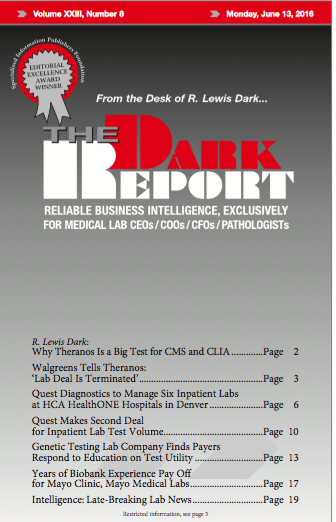CEO SUMMARY: For decades, hospitals were reluctant to allow any outside lab company to run their inpatient lab operations because they preferred to maintain control over quality results and turnaround times. That attitude may be changing as health systems face increasing margin compression by moving to value-based reimbursement models and taking on more risk-based contracts. …
Quest to Manage Six Labs at HCA HealthONE Hospitals Read More »
To access this post, you must purchase The Dark Report.


